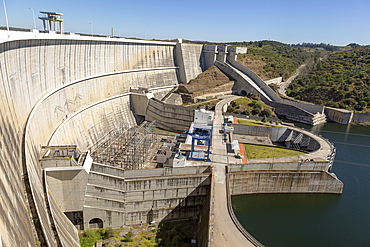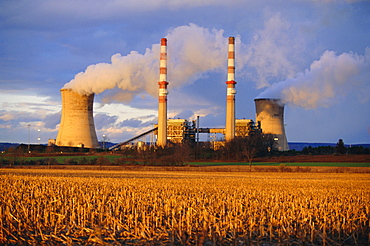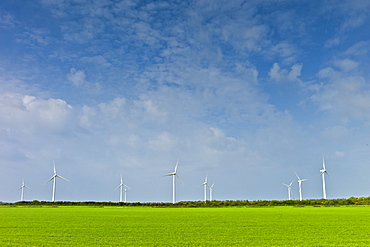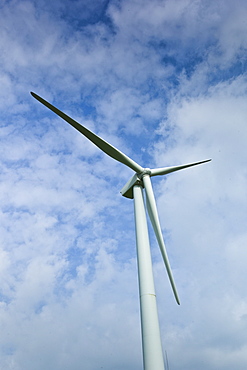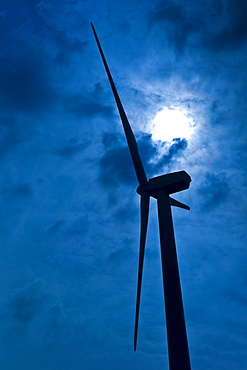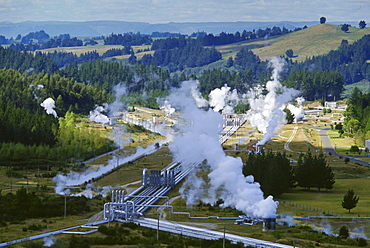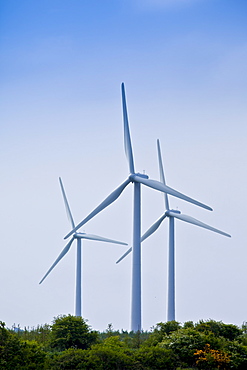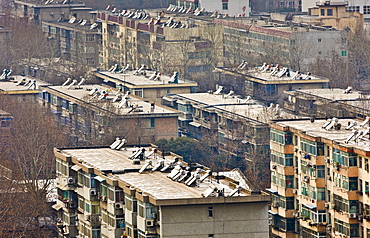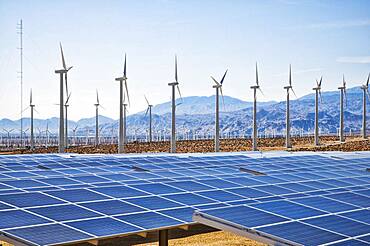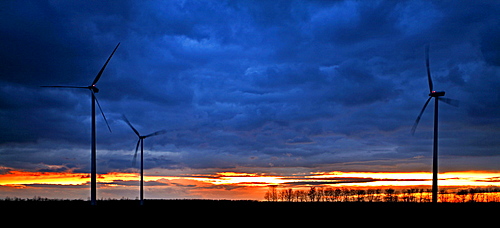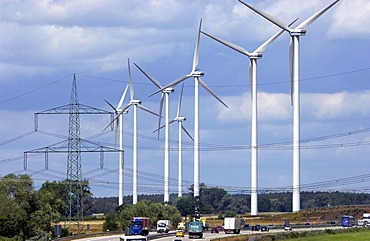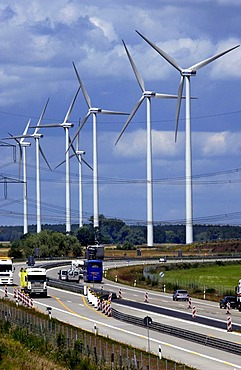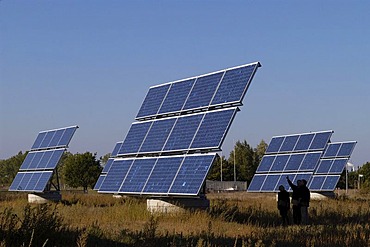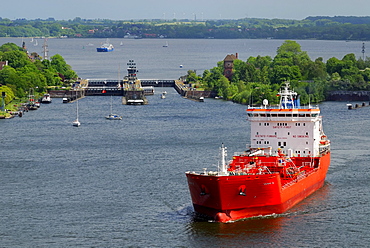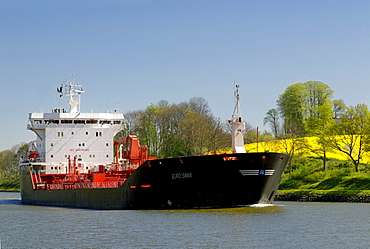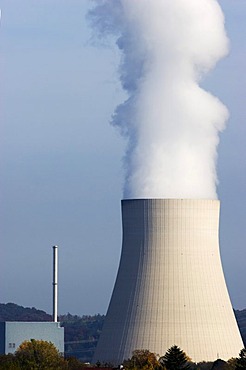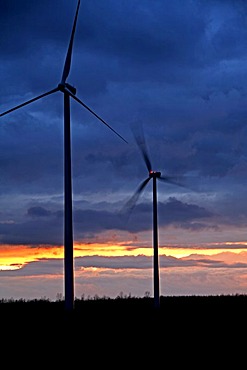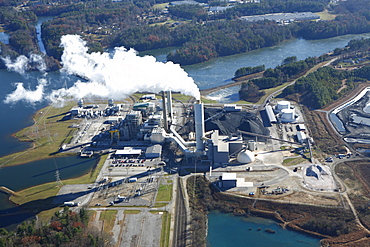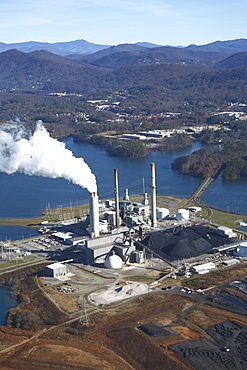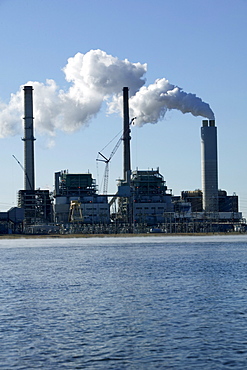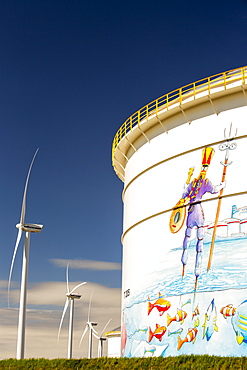Results
11 results found

The Trans Alaska Oil Pipeline running on refridgerated support to stop oil heat melting the permafrost,Mount Hayes (4116m) and the Alaska Range in the background, Alaska, USA
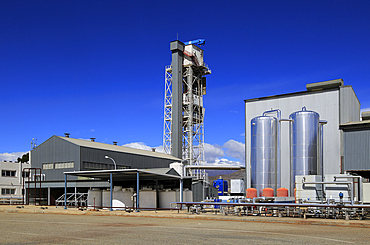
Desalinisation plant at the solar energy scientific research centre, Tabernas, Almeria, Andalusia, Spain, Europe
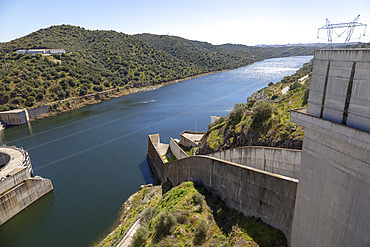
Barragem do Alqueva dam, part of the multipurpose water management project on the Rio Guadiana river, hydro-electricity generation electricity power lines, Moura, Portugal, Europe

View of modern skyscrapers in Dubai, the fastest growing city in the world, Dubai, United Arab Emirates
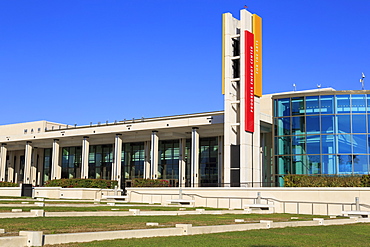
Mahaffey Theater, Progress Energy Center for the Arts, St. Petersburg, Tampa, Florida, United States of America, North America
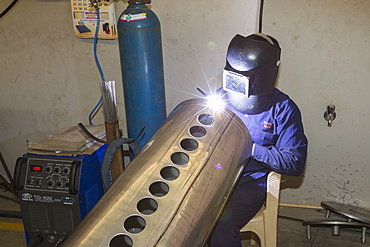
The Kamal factory in Bangalore, Karnataka, India that manufactures solar thermal panels for heating water.
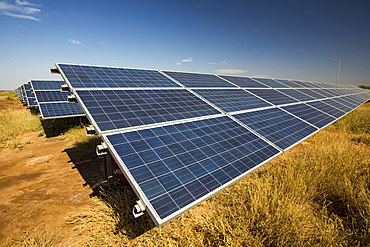
Asia's largest solar popwer station, the Gujarat Solar Park, in Gujarat, India. It has an installed capacity of 1000 MW
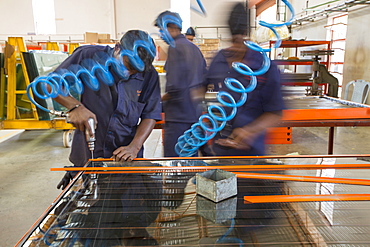
The Kamal factory in Bangalore, Karnataka, India that manufactures solar thermal panels for heating water.
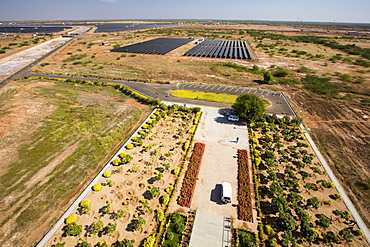
Asia's largest solar popwer station, the Gujarat Solar Park, in Gujarat, India. It has an installed capacity of 1000 MW
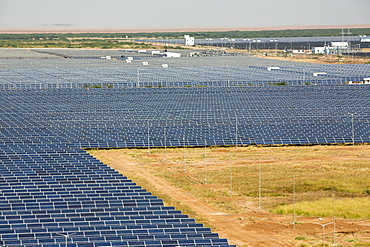
Asia's largest solar popwer station, the Gujarat Solar Park, in Gujarat, India. It has an installed capacity of 1000 MW
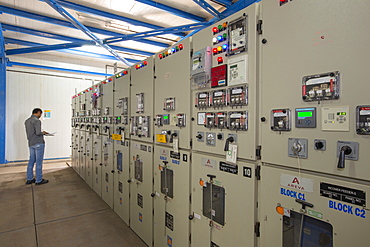
Asia's largest solar power station, the Gujarat Solar Park, in Gujarat, India. It has an installed capacity of 1000 MW
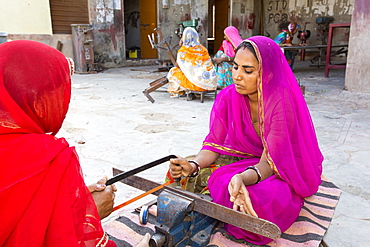
Women constructing solar cookers at the Barefoot College in Tilonia, Rajasthan, India. The Barefoot College is a worldwide charity, founded by Bunker Roy, its aims are, education, drinking water, electrification through solar power, skill development, health, women empowerment and the upliftment of rural people. The use of the cookers, vastly reduces the amount of fire wood women have to go out and collect from the forest.
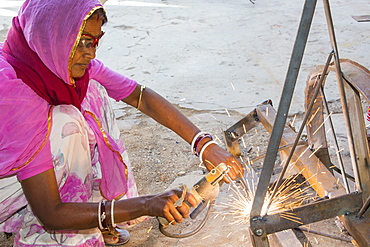
Women welding joints during the construction of solar cookers at the Barefoot College in Tilonia, Rajasthan, India. The Barefoot College is a worldwide charity, founded by Bunker Roy, its aims are, education, drinking water, electrification through solar power, skill development, health, women empowerment and the upliftment of rural people. Solar cookers save women having to walk to the froest to cut down wood for cooking, thus saving the forests, and a daily chore for woman.
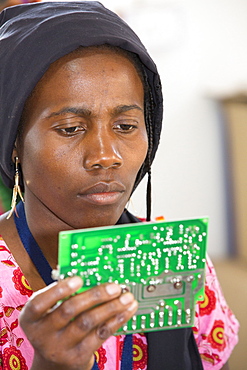
Women on a solar workshop, learning how to make solar lanters at the Barefoot College in Tilonia, Rajasthan, India. The Barefoot College is a worldwide charity, founded by Bunker Roy, its aims are, education, drinking water, electrification through solar power, skill development, health, women empowerment and the upliftment of rural people. Many of the women are iliterate or semi literate. They are trained from countries all over the world, so that they can take their skills back and cascade the learning.
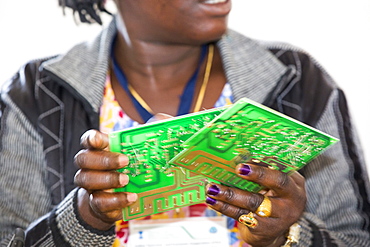
Women on a solar workshop, learning how to make solar lanters at the Barefoot College in Tilonia, Rajasthan, India. The Barefoot College is a worldwide charity, founded by Bunker Roy, its aims are, education, drinking water, electrification through solar power, skill development, health, women empowerment and the upliftment of rural people. Many of the women are iliterate or semi literate. They are trained from countries all over the world, so that they can take their skills back and cascade the learning.
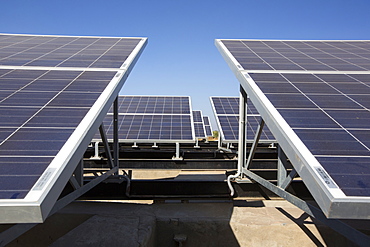
Solar panelsproviding electricity at the Barefoot College in Tilonia, Rajasthan, India. The Barefoot College is a worldwide charity, founded by Bunker Roy, its aims are, education, drinking water, electrification through solar power, skill development, health, women empowerment and the upliftment of rural people.
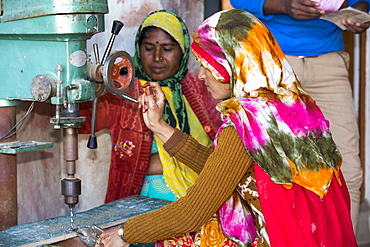
Women building solar cookers at the Barefoot College in Tilonia, Rajasthan, India. The Barefoot College is a worldwide charity, founded by Bunker Roy, its aims are, education, drinking water, electrification through solar power, skill development, health, women empowerment and the upliftment of rural people.
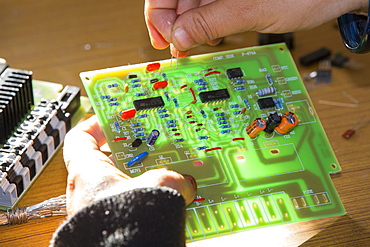
Women on a solar workshop, learning how to make solar lanters at the Barefoot College in Tilonia, Rajasthan, India. The Barefoot College is a worldwide charity, founded by Bunker Roy, its aims are, education, drinking water, electrification through solar power, skill development, health, women empowerment and the upliftment of rural people. Many of the women are iliterate or semi literate. They are trained from countries all over the world, so that they can take their skills back and cascade the learning.
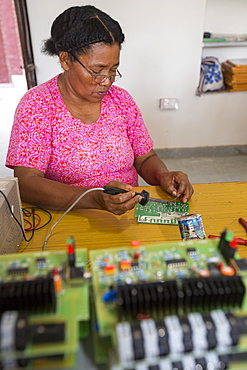
Women on a solar workshop, learning how to make solar lanters at the Barefoot College in Tilonia, Rajasthan, India. The Barefoot College is a worldwide charity, founded by Bunker Roy, its aims are, education, drinking water, electrification through solar power, skill development, health, women empowerment and the upliftment of rural people. Many of the women are iliterate or semi literate. They are trained from countries all over the world, so that they can take their skills back and cascade the learning.
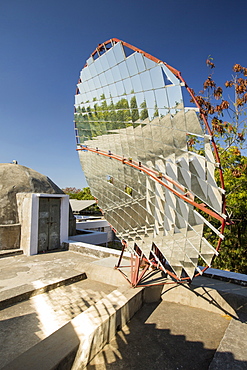
Solar cookers at the Barefoot College in Tilonia, Rajasthan, India. The Barefoot College is a worldwide charity, founded by Bunker Roy, its aims are, education, drinking water, electrification through solar power, skill development, health, women empowerment and the upliftment of rural people. The use of the cookers, vastly reduces the amount of fire wood women have to go out and collect from the forest.
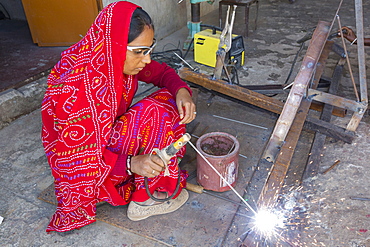
Women welding joints during the construction of solar cookers at the Barefoot College in Tilonia, Rajasthan, India. The Barefoot College is a worldwide charity, founded by Bunker Roy, its aims are, education, drinking water, electrification through solar power, skill development, health, women empowerment and the upliftment of rural people. Solar cookers save women having to walk to the froest to cut down wood for cooking, thus saving the forests, and a daily chore for woman.
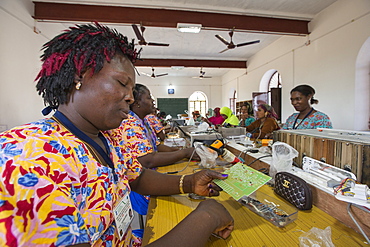
Women on a solar workshop, learning how to make solar lanters at the Barefoot College in Tilonia, Rajasthan, India. The Barefoot College is a worldwide charity, founded by Bunker Roy, its aims are, education, drinking water, electrification through solar power, skill development, health, women empowerment and the upliftment of rural people. Many of the women are iliterate or semi literate. They are trained from countries all over the world, so that they can take their skills back and cascade the learning.
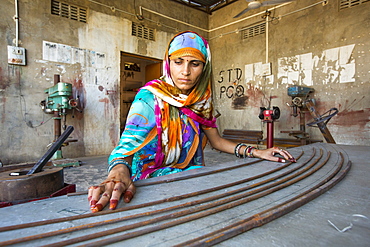
Women constructing solar cookers at the Barefoot College in Tilonia, Rajasthan, India. The Barefoot College is a worldwide charity, founded by Bunker Roy, its aims are, education, drinking water, electrification through solar power, skill development, health, women empowerment and the upliftment of rural people. The use of the cookers, vastly reduces the amount of fire wood women have to go out and collect from the forest.
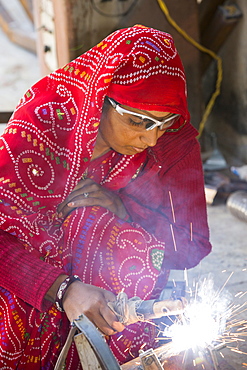
Women welding joints during the construction of solar cookers at the Barefoot College in Tilonia, Rajasthan, India. The Barefoot College is a worldwide charity, founded by Bunker Roy, its aims are, education, drinking water, electrification through solar power, skill development, health, women empowerment and the upliftment of rural people. Solar cookers save women having to walk to the froest to cut down wood for cooking, thus saving the forests, and a daily chore for woman.
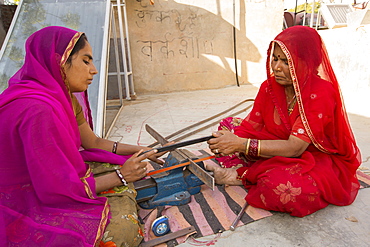
Women constructing solar cookers at the Barefoot College in Tilonia, Rajasthan, India. The Barefoot College is a worldwide charity, founded by Bunker Roy, its aims are, education, drinking water, electrification through solar power, skill development, health, women empowerment and the upliftment of rural people.
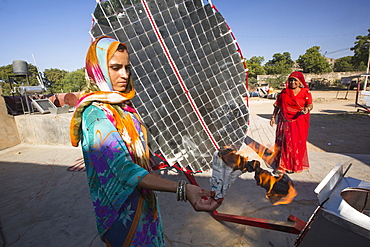
Women constructing solar cookers at the Barefoot College in Tilonia, Rajasthan, India, demonstrate how hot the device is, by holding a sheet of newspaper which instantly sets on fire in the 300 degree Celcius heat. The Barefoot College is a worldwide charity, founded by Bunker Roy, its aims are, education, drinking water, electrification through solar power, skill development, health, women empowerment and the upliftment of rural people. The use of the cookers, vastly reduces the amount of fire wood women have to go out and collect from the forest.
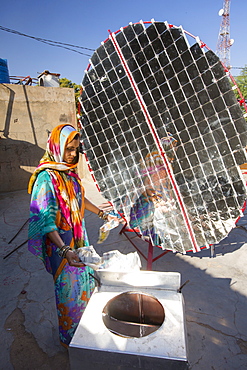
Women constructing solar cookers at the Barefoot College in Tilonia, Rajasthan, India. The Barefoot College is a worldwide charity, founded by Bunker Roy, its aims are, education, drinking water, electrification through solar power, skill development, health, women empowerment and the upliftment of rural people.
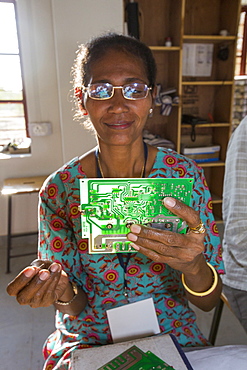
Women on a solar workshop, learning how to make solar lanters at the Barefoot College in Tilonia, Rajasthan, India. The Barefoot College is a worldwide charity, founded by Bunker Roy, its aims are, education, drinking water, electrification through solar power, skill development, health, women empowerment and the upliftment of rural people. Many of the women are iliterate or semi literate. They are trained from countries all over the world, so that they can take their skills back and cascade the learning.
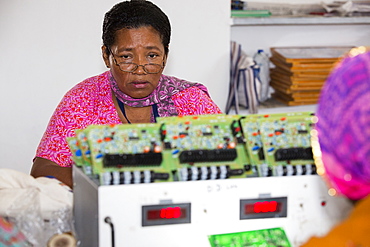
Women on a solar workshop, learning how to make solar lanters at the Barefoot College in Tilonia, Rajasthan, India. The Barefoot College is a worldwide charity, founded by Bunker Roy, its aims are, education, drinking water, electrification through solar power, skill development, health, women empowerment and the upliftment of rural people. Many of the women are iliterate or semi literate. They are trained from countries all over the world, so that they can take their skills back and cascade the learning.
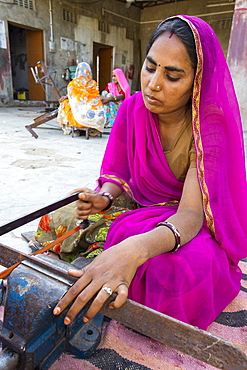
Women constructing solar cookers at the Barefoot College in Tilonia, Rajasthan, India. The Barefoot College is a worldwide charity, founded by Bunker Roy, its aims are, education, drinking water, electrification through solar power, skill development, health, women empowerment and the upliftment of rural people. The use of the cookers, vastly reduces the amount of fire wood women have to go out and collect from the forest.
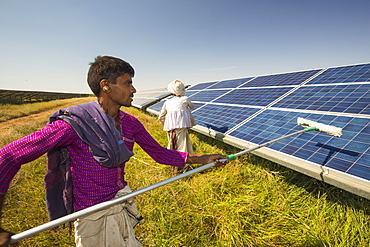
Asia's largest solar popwer station, the Gujarat Solar Park, in Gujarat, India. It has an installed capacity of 1000 MW. Here workers wash dust off the panels to increase their efficiency.
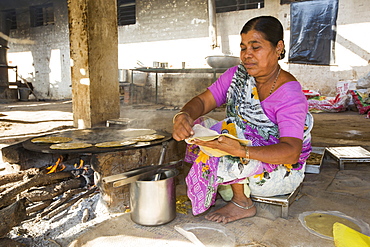
The Muni Seva Ashram in Goraj, near Vadodara, India, is a tranquil haven of humanitarian care. The Ashram is hugely sustainable, next year it will be completely carbon neutral. Its first solar panels were installed in 1984, long before climate change was on anyones agenda. Their energy is provided from solar panels, and wood grown on the estate. Waste food and animal manure is turned inot biogas to run the estates cars and also used for cooking. Solar cookers are also used, and the air conditioning for the hospital is solar run. 70 % of the food used is grown on the estate. They provide an orphanage, schools for all ages, vocational training, care for the elderly, a specialist cancer hospital withstate of the art machinary, and even have a solar crematorium. This shot shows a cook preparing chapatis on a biofuel stove.
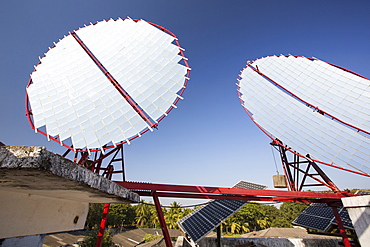
The Muni Seva Ashram in Goraj, near Vadodara, India, is a tranquil haven of humanitarian care. The Ashram is hugely sustainable, next year it will be completely carbon neutral. Its first solar panels were installed in 1984, long before climate change was on anyones agenda. Their energy is provided from solar panels, and wood grown on the estate. Waste food and animal manure is turned inot biogas to run the estates cars and also used for cooking. Solar cookers are also used, and the air conditioning for the hospital is solar run. 70 % of the food used is grown on the estate. They provide an orphanage, schools for all ages, vocational training, care for the elderly, a specialist cancer hospital withstate of the art machinary, and even have a solar crematorium. This shot shows solar panels that focus the suns rays on heat exchangers to boil oil, which is then sent down to the kitchens below to heat the cookers.
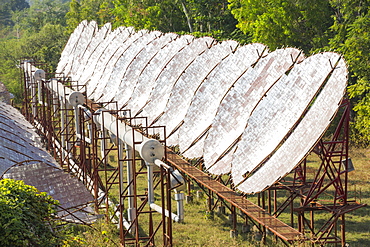
The Muni Seva Ashram in Goraj, near Vadodara, India, is a tranquil haven of humanitarian care. The Ashram is hugely sustainable, next year it will be completely carbon neutral. Its first solar panels were installed in 1984, long before climate change was on anyones agenda. Their energy is provided from solar panels, and wood grown on the estate. Waste food and animal manure is turned inot biogas to run the estates cars and also used for cooking. Solar cookers are also used, and the air conditioning for the hospital is solar run. 70 % of the food used is grown on the estate. They provide an orphanage, schools for all ages, vocational training, care for the elderly, a specialist cancer hospital withstate of the art machinary, and even have a solar crematorium. This shot shows the solar air conditioning for the Ashram's hospital.
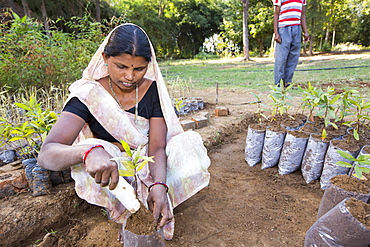
The Muni Seva Ashram in Goraj, near Vadodara, India, is a tranquil haven of humanitarian care. The Ashram is hugely sustainable, next year it will be completely carbon neutral. Its first solar panels were installed in 1984, long before climate change was on anyones agenda. Their energy is provided from solar panels, and wood grown on the estate. Waste food and animal manure is turned inot biogas to run the estates cars and also used for cooking. Solar cookers are also used, and the air conditioning for the hospital is solar run. 70 % of the food used is grown on the estate. They provide an orphanage, schools for all ages, vocational training, care for the elderly, a specialist cancer hospital withstate of the art machinary, and even have a solar crematorium. This shot shows a woman planting trees for onward growth in the Ashrams forests.

The Muni Seva Ashram in Goraj, near Vadodara, India, is a tranquil haven of humanitarian care. The Ashram is hugely sustainable, next year it will be completely carbon neutral. Its first solar panels were installed in 1984, long before climate change was on anyones agenda. Their energy is provided from solar panels, and wood grown on the estate. Waste food and animal manure is turned inot biogas to run the estates cars and also used for cooking. Solar cookers are also used, and the air conditioning for the hospital is solar run. 70 % of the food used is grown on the estate. They provide an orphanage, schools for all ages, vocational training, care for the elderly, a specialist cancer hospital withstate of the art machinary, and even have a solar crematorium. This shot shows the girls school.
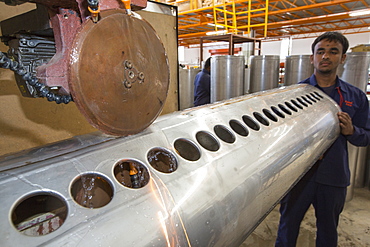
The Kamal factory in Bangalore, Karnataka, India that manufactures solar thermal panels for heating water.
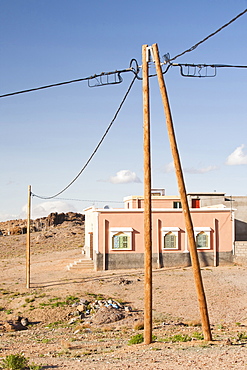
Electricty comes to the Berber village of Tinzarine near Jebel Sirwa in the Anti Atlas mountains of Morocco, North Africa, Africa
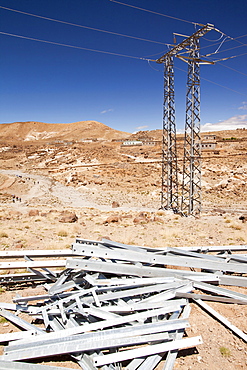
Electricty comes to a Berber village near Jebel Sirwa in the Anti Atlas mountains of Morocco, North Africa, Africa
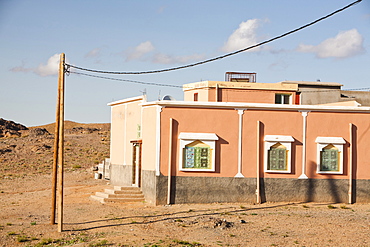
Electricty comes to the Berber village of Tinzarine near Jebel Sirwa in the Anti Atlas mountains of Morocco, North Africa, Africa
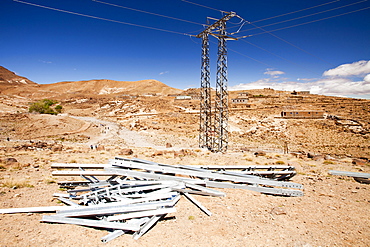
Electricty comes to a Berber village near Jebel Sirwa in the Anti Atlas mountains of Morocco, North Africa, Africa

Fitness App. Sporty Fit Young Lady Holding And Pointing At Smartphone With fitness app While Training indoors. Smiling Woman Demonstrating screen of mobile phone
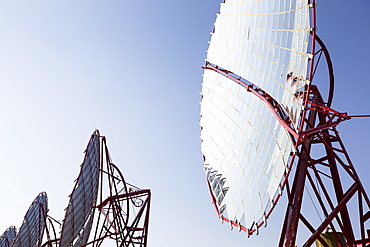
The Muni Seva Ashram in Goraj, near Vadodara, India, is a tranquil haven of humanitarian care. The Ashram is hugely sustainable, next year it will be completely carbon neutral. Its first solar panels were installed in 1984, long before climate change was on anyones agenda. Their energy is provided from solar panels, and wood grown on the estate. Waste food and animal manure is turned inot biogas to run the estates cars and also used for cooking. Solar cookers are also used, and the air conditioning for the hospital is solar run. 70 % of the food used is grown on the estate. They provide an orphanage, schools for all ages, vocational training, care for the elderly, a specialist cancer hospital withstate of the art machinary, and even have a solar crematorium. This shot shows solar panels that focus the suns rays on heat exchangers to boil oil, which is then sent down to the kitchens below to heat the cookers.
